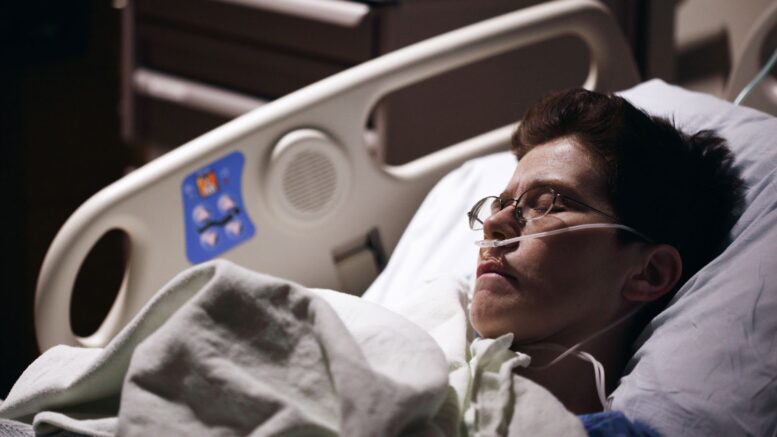Are you or a loved one suffering from painful bed sores? It’s important to understand the role healthcare providers play in preventing and treating these all-too-common conditions.
Bed sores, also known as pressure ulcers, can be caused by prolonged pressure on the skin, often occurring in people who are bedridden or have limited mobility. But are bed sores simply an unfortunate consequence of these circumstances, or can they be considered medical negligence?
Let’s explore the preventative measures, treatment options, as well as how to advocate for patient rights and safety if they’re suffering from bed sores. Knowing when to contact bedsore lawyers is also a crucial step in holding people accountable if they are found to be negligent.
Understanding Bed Sores and Their Causes
If you don’t take proper care of your skin and remain in one position for long periods of time, you’re likely to develop bed sores. These painful and often preventable wounds occur when the pressure on certain areas of your body restricts blood flow, leading to tissue damage.
Bed sores, also known as pressure ulcers, commonly develop on bony areas such as the heels, hips, and tailbone. However, they can also form on other parts of the body.
The main causes of bedsores include immobility, poor nutrition, dehydration, and friction or shear forces on the skin. It’s important to understand that bed sores are not just a result of natural aging or unavoidable circumstances.
By taking proactive measures to prevent them, such as regularly changing positions, using pressure-relieving devices, and maintaining good skin hygiene, you can significantly reduce the risk of developing bed sores.
Recognizing the Role of Healthcare Providers
When healthcare providers fail to address preventable injuries, it can lead to serious consequences and raise questions about their responsibility. Bed sores are one such preventable injury that can occur when healthcare providers neglect their duty of care.
Healthcare providers have a crucial role in recognizing the risk factors and taking appropriate measures to prevent bed sores from occurring. This includes regular repositioning of patients, providing adequate support surfaces, and ensuring proper nutrition and hydration.
Failure to do so can result in the development of painful and potentially life-threatening bed sores, which can be considered a form of medical negligence. It is important for healthcare providers to remain vigilant and prioritize the well-being of their patients to prevent such injuries.
Legal action can result in compensation for medical expenses, pain and suffering, and other damages. It is important for patients and their families to understand their rights and consult with a qualified attorney if they suspect medical negligence in their bedsore case.
Preventative Measures and Treatment Options
Taking proactive steps and exploring various remedies can help prevent and treat pressure ulcers, ensuring a healthier and more comfortable experience for patients.
To prevent bed sores, it’s crucial to regularly change positions, especially for those who are immobile or bedridden. Frequent repositioning helps alleviate pressure on certain areas of the body.
Maintaining proper hygiene and keeping the skin clean and dry is essential. Using specialized cushions or mattresses that distribute pressure evenly can also be beneficial.
In terms of treatment, the focus is on relieving pressure, promoting healing, and preventing infection. Wound dressings, such as hydrocolloid or foam dressings, can be used to protect the affected area while facilitating healing.
In severe cases, surgery may be necessary to remove damaged tissue and promote healing. Regular monitoring and communication with healthcare providers are crucial to ensure the effectiveness of preventative measures and treatment options.
Advocating for Patient Rights and Safety
Advocating for patient rights and safety ensures a positive and secure healthcare experience for individuals. By actively advocating for yourself or a loved one, you can help prevent bed sores and ensure proper treatment if they do occur.
Start by communicating openly with healthcare providers, expressing any concerns or questions you may have. It’s important to be an active participant in your healthcare, asking for regular repositioning and skin checks to prevent bed sores. Additionally, make sure that healthcare staff are using proper equipment, such as specialized mattresses and cushions, to reduce the risk of pressure ulcers.
If you or your loved one does develop a bedsore, insist on timely and appropriate treatment, including wound care and pain management. Remember, advocating for patient rights and safety is crucial in preventing and addressing bed sores effectively.
Conclusion
It’s important to recognize that bed sores can be a form of medical negligence. Healthcare providers have a responsibility to prevent and treat these sores, and failure to do so can result in legal consequences.
It’s crucial for patients and their families to advocate for their rights and safety, and to take preventative measures to avoid bed sores. By holding healthcare providers accountable and promoting patient well-being, we can work towards preventing bed sores and improving overall healthcare quality.
